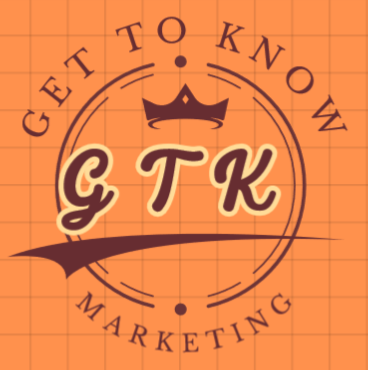Artificial Intelligence (AI) has rapidly transformed industries, driving innovation and efficiency. Yet, despite its potential, many businesses still face hurdles on their AI journey. In this report, we’ll explore the key challenges businesses encounter when implementing AI, backed by the latest data from 2023 and 2024, with real-world examples that showcase both successes and obstacles.
1. Defining a Clear AI Strategy
The Challenge
Building a comprehensive AI strategy is a struggle for many organizations. It’s one thing to adopt AI in a department; it’s another to implement it across the board with a clear vision.
Key Stats
- By 2023, only 20% of companies had an organization-wide AI strategy. This low number signals that most businesses still operate in silos when it comes to AI.
- In 2024, 55% of organizations had integrated AI into at least one function, a number that hasn’t grown much since 2022.
Example: Microsoft
Microsoft’s success with its Azure AI platform stems from a well-defined strategy that aligns AI with core business objectives. From software development to customer service, they’ve ensured AI is a key driver across the company.
2. Tackling Data Quality Issues
The Challenge
AI thrives on data, but poor data quality is a persistent problem. If the inputs are flawed, AI outputs will be too, limiting the technology’s effectiveness.
Key Stats
- In 2023, 39% of businesses said poor data quality was a significant obstacle to AI adoption.
- By 2024, businesses reported losing an average of $12.9 million annually due to data quality issues—a staggering cost that demonstrates how critical this issue remains.
Example: Airbnb
Airbnb understands that data drives everything, from pricing models to user recommendations. They’ve invested heavily in a robust data quality framework, ensuring that every AI-powered decision is based on accurate, reliable data.
3. Getting Employees on Board
The Challenge
Even the best AI tools won’t succeed without employee buy-in. Many workers are hesitant, fearing that AI could replace their jobs. Businesses must address these concerns while highlighting AI’s ability to enhance, not replace, human roles.
Key Stats
- In 2023, 37% of employees were worried that AI could threaten their job security.
- On the flip side, 74% believe AI could make their jobs more interesting and efficient.
Example: IBM
IBM’s approach to AI is people-first. They’ve focused on reskilling employees to work alongside AI, recognizing that training is key. They estimate over 20% of their workforce will need reskilling by 2024 due to AI advancements.
4. Navigating Regulatory Challenges
The Challenge
The regulatory landscape surrounding AI is evolving quickly, and companies are finding it tough to keep up. From data privacy to ethical concerns, navigating AI regulations requires significant resources.
Key Stats
- In 2023, 33% of organizations pointed to regulatory compliance as a major barrier to AI adoption.
- The upcoming EU AI Act, set to be fully in place by 2025, will impact up to 45% of AI applications.
Example: Google
Google has been proactive, establishing AI ethics boards and developing transparency practices to ensure their AI innovations meet global regulatory standards. Compliance with these ever-changing regulations is key to their AI strategy.
5. Budget Constraints
The Challenge
Implementing AI can be expensive, and many businesses struggle to allocate the necessary funds, especially without a guaranteed return on investment.
Key Stats
- Global AI spending is projected to hit $154 billion in 2023, with an impressive compound annual growth rate (CAGR) of 26.5% through 2026.
- Despite this, 26% of companies still cite budget concerns as a major hurdle.
Example: Spotify
Spotify has taken a strategic approach to AI investment, focusing on projects like personalized playlists that deliver immediate value. By proving the ROI in smaller projects, they’ve been able to expand AI capabilities more gradually.
6. Addressing Ethical Concerns
The Challenge
AI’s potential for bias, privacy issues, and lack of transparency are top concerns. Companies must be vigilant in developing ethical AI that respects data privacy and ensures fairness.
Key Stats
- In 2023, 78% of organizations acknowledged that AI ethics were important, but only 50% had implemented measures to tackle AI bias.
Example: Apple
Apple has built its AI systems with privacy at the forefront. For instance, their on-device AI processing for Face ID showcases their commitment to ethical AI, ensuring user data never leaves their devices.
Conclusion: Bridging the AI Gap
AI is reshaping industries, but for many businesses, the road to successful implementation is paved with challenges. The companies that will thrive in the AI era are those that develop a clear strategy, invest in data quality, train their workforce, navigate regulations wisely, control costs, and prioritize ethical considerations. By doing so, organizations can unlock AI’s full potential and gain a competitive edge.
By blending strategic planning with ethical, data-driven practices, businesses can overcome AI adoption barriers and achieve long-term success.
Citations:
- McKinsey, “The State of AI in 2023: Generative AI’s Breakout Year”
- Deloitte, “State of AI in the Enterprise, 5th Edition” (2023)
- IBM, “Global AI Adoption Index 2023”
- McKinsey, “The State of AI in Early 2024”
- IDC, “Worldwide Artificial Intelligence Spending Guide” (2023)
